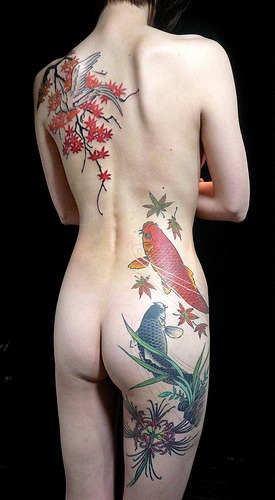India Women Army in Military Training
The reputation of the Indian defence forces is taking quite a battering lately. Lieutenant Sushmita Chakravorty's suicide in Udhampur had stirred up a hornet's nest. The whole issue of whether women are capable of handling the pressures within the military has been underscored by her death.
Having stayed away from civilian society and built up a kind of hermetically sealed world, the armed forces now find it difficult to deal with situations and people outside their gamut of defence services when it comes to social issues like these. And this has got proved in Sushmita Charaborty's suicide case. Look at the manner in which the Army has dealt with the suicide of a young, lady officer.
The Vice-Chief immediately reacted by saying that the Army was not yet ready to cope with women as officers. An honest admission, probably, but totally out of sync with the real world, where females have joined the work force in large numbers and have also proved to be strong leaders. Though the Ministry of Defence later said that he was misquoted, the remark brought to fore the problems that women are facing in the Army.
It is worth mentioning in this regard that though women have been serving in the medical corps of the military for a long time now, it was only in 1992 that the Army began inducting women for other duties as well. But there are cases where women have had to face indifferent, if not hostile attitudes, on part of the male officers.
According to many women, the problems are evident at the training level itself. The treatment meted out to men and women cadets are conspicuously different, with women getting "softer treatment".
The Vice-Chief immediately reacted by saying that the Army was not yet ready to cope with women as officers. An honest admission, probably, but totally out of sync with the real world, where females have joined the work force in large numbers and have also proved to be strong leaders. Though the Ministry of Defence later said that he was misquoted, the remark brought to fore the problems that women are facing in the Army.
It is worth mentioning in this regard that though women have been serving in the medical corps of the military for a long time now, it was only in 1992 that the Army began inducting women for other duties as well. But there are cases where women have had to face indifferent, if not hostile attitudes, on part of the male officers.
According to many women, the problems are evident at the training level itself. The treatment meted out to men and women cadets are conspicuously different, with women getting "softer treatment".
On the other hand, their male counterparts are of the view that considering the fact that it's only been 14-15 years since women were inducted into the armed forces, it will take time for men and women to get used to each other. "I think the military is doing fairly well. These are initial teething troubles. Suddenly, one incident is being highlighted as an example to show that women are not treated well. After all, women doctors have been serving in the military for quite a long time and there have never been any problems," pointed out Vijay Sakhuja, Former navy commander.
In an article published by the United Services Institution of India in December 2005, retired Captain Deepanjali Bakshi, an alumnus of the academy, gives significant insight into the discrepancies. According to her, special concessions are made and physical standards are lowered for women. As a result, differences in assignments and attitudes continue throughout their service.
It is worth pointing in this regard that women are only trained for 24 weeks while gentlemen cadets are trained for 44 weeks, even though they cover the same syllabus.
In an article published by the United Services Institution of India in December 2005, retired Captain Deepanjali Bakshi, an alumnus of the academy, gives significant insight into the discrepancies. According to her, special concessions are made and physical standards are lowered for women. As a result, differences in assignments and attitudes continue throughout their service.
It is worth pointing in this regard that women are only trained for 24 weeks while gentlemen cadets are trained for 44 weeks, even though they cover the same syllabus.
In addition to this, separate accommodation, physical training, weapons training and even the marches at the passing-out parade only reinforce this feeling of gender bias within the service.
"These concessions, coupled with the mostly patronizing, derisive and sometimes supporting attitudes of men result in a plethora of integration issues cropping up," pointed out Captain Deepanjali Bakshi in her article.
Like Bakshi, many women are of the view that women cadets need to be put through equal mental and physical rigours, so that they can pass out as equals. "There is an urgent need for a training programme, which will them tough and prepare them mentally to meet any challenge," said one woman officer on condition of anonymity.
All this does not mean that women at the moment are not playing a prominent role in the forces. They constitute the backbone of the Armed Forces Medical Services and the Military Nursing Service and have even risen to three-star rank. But breaking through the glass ceiling of the Combat arms doesn't even seem to be any closer to the horizon.
"These concessions, coupled with the mostly patronizing, derisive and sometimes supporting attitudes of men result in a plethora of integration issues cropping up," pointed out Captain Deepanjali Bakshi in her article.
Like Bakshi, many women are of the view that women cadets need to be put through equal mental and physical rigours, so that they can pass out as equals. "There is an urgent need for a training programme, which will them tough and prepare them mentally to meet any challenge," said one woman officer on condition of anonymity.
All this does not mean that women at the moment are not playing a prominent role in the forces. They constitute the backbone of the Armed Forces Medical Services and the Military Nursing Service and have even risen to three-star rank. But breaking through the glass ceiling of the Combat arms doesn't even seem to be any closer to the horizon.
Unless the government does something concrete about treating women at par with men, not many women will feel encouraged enough to join the forces. And considering that the women have been contributing to the society in every field, there is no justification for women being denied the opportunity to serve the armed forces as well.
In this regard, statement of Defence Minister is a welcome sign. Insisting that there was no bias against women in the armed forces, Defence Minister Pranab Mukherjee has publicly said that the members of the fair sex are being encouraged to join the defence services in large numbers. He also said that as of now, no view has been taken at the "decision-making" level on the issue of creating the post of combined Defence Services.
In this regard, statement of Defence Minister is a welcome sign. Insisting that there was no bias against women in the armed forces, Defence Minister Pranab Mukherjee has publicly said that the members of the fair sex are being encouraged to join the defence services in large numbers. He also said that as of now, no view has been taken at the "decision-making" level on the issue of creating the post of combined Defence Services.
"I can assure you (that) there is no bias against the women officers. We are proud of them (women). They are making valuable contributions and we would like to encourage them to come (into the armed forces)," he confirmed.
When asked about the issue of women being given combat role, the Defence Minister assured that it depended on the women cadets if they were willing to join combat services even when it is evident that combat services mean a harder task. According to the latest statistics there are just 918 women officers serving in non-combat roles in the 1.1 million strong Indian army.
In fact discrimination starts at the very beginning. Women are recruited only on Short-Service Commissions of five to ten years and cannot rise above the rank of a Major. And even though this period of service has now been extended to 14 years there is still no information about the 'promotions' aspect. As of now, it is yet to be seen how this women power in army is going to prove its mettle.
When asked about the issue of women being given combat role, the Defence Minister assured that it depended on the women cadets if they were willing to join combat services even when it is evident that combat services mean a harder task. According to the latest statistics there are just 918 women officers serving in non-combat roles in the 1.1 million strong Indian army.
In fact discrimination starts at the very beginning. Women are recruited only on Short-Service Commissions of five to ten years and cannot rise above the rank of a Major. And even though this period of service has now been extended to 14 years there is still no information about the 'promotions' aspect. As of now, it is yet to be seen how this women power in army is going to prove its mettle.































0 comments:
Post a Comment